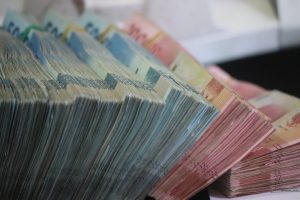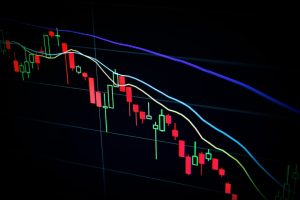The forex market, also known as the foreign exchange market, is the largest financial market in the world. It is a decentralized market where currencies are traded 24 hours a day, 5 days a week. The forex market is essential for international trade and investment, and it is where individuals, institutions, and governments exchange currencies to conduct business around the globe. In this article, we will take a closer look at how the forex market works.
What is Forex Trading?
Forex trading is the buying and selling of currencies with the aim of making a profit. Forex traders speculate on the movement of currency exchange rates, taking advantage of fluctuations in the values of different currencies. For example, a forex trader may buy the US dollar (USD) against the euro (EUR) if they believe the USD will increase in value relative to the EUR.
Forex trading can be done through a broker or a financial institution that provides access to the forex market. The most commonly traded currencies in the forex market are the US dollar, euro, Japanese yen, British pound, Swiss franc, Canadian dollar, and Australian dollar. However, traders can also trade other currencies, such as emerging market currencies.
How Does the Forex Market Work?
The forex market is a decentralized market, which means that there is no central exchange or clearinghouse. Instead, forex trading is conducted through a network of banks, brokers, and other financial institutions. These institutions trade currencies with each other electronically, using a global decentralized network of computers.
The forex market is open 24 hours a day, 5 days a week, starting from Sunday evening in Asia and closing on Friday evening in New York. This means that forex traders can trade at any time, except on weekends and public holidays. The forex market is also divided into different trading sessions, with the major sessions being the Asian, European, and North American sessions.
The forex market is driven by a range of factors, including macroeconomic indicators, political developments, and market sentiment. Macroeconomic indicators, such as GDP, inflation, and employment data, can have a significant impact on currency exchange rates. Political developments, such as elections and government policy changes, can also affect currency exchange rates. Market sentiment, or the overall mood of traders, can influence currency prices as well.
Factors Affecting Currency Exchange Rates
There are several factors that can affect currency exchange rates in the forex market. These include:
1. Interest rates – Higher interest rates generally attract foreign investment, which can increase demand for a currency and push up its value.
2. Inflation – Higher inflation rates can lead to a currency’s depreciation, as it reduces the purchasing power of the currency.
3. Political stability – Currencies of politically stable countries tend to be more attractive to investors than those of politically unstable countries.
4. Trade balance – A country’s trade balance, or the difference between its exports and imports, can affect its currency exchange rates.
5. Market sentiment – The overall mood of traders can influence currency exchange rates, as traders may buy or sell currencies based on their expectations of future price movements.
Risks and Benefits of Forex Trading
Forex trading carries some risks and benefits. The benefits of forex trading include the ability to trade 24 hours a day, high liquidity, and the potential for high profits. However, forex trading also carries risks, such as high volatility, leverage, and the potential for significant losses. Traders need to have a solid understanding of the forex market and risk management strategies to be successful in forex trading.
Conclusion
The forex market is a complex and decentralized market where currencies are traded 24 hours a day, 5 days a week. Forex trading involves speculating on the movement of currency exchange rates and can be done through a broker or financial institution. The forex market is driven by a range of factors, including macroeconomic indicators, political developments, and market sentiment. Forex trading carries both risks and benefits, and traders need to have a solid understanding of the market and risk management strategies to be successful.






